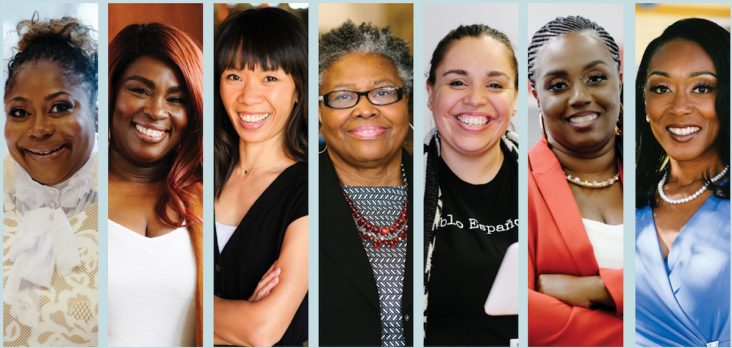Study: Women of color in Arkansas face barriers to entrepreneurship
by February 25, 2021 4:36 pm 2,377 views

Entrepreneurship is a tough road. For women of color in Arkansas, it’s even harder as they face substantial barriers and resource gaps, according to a study commissioned by The Women’s Foundation, of Arkansas in collaboration with the University of Central Arkansas.
The research sought to identify gaps in Arkansas’ entrepreneurial ecosystem specifically for black women as they established their own businesses. (Link here for a PDF of the study report.)
“Many of the resources that Arkansas offers to entrepreneurs aren’t reaching women of color business owners,” said Women’s Foundation of Arkansas Executive Director Anna Beth Gorman. “Women of color business owners have basically had to figure it out on their own because of systemic barriers.”
The study began in January 2020 before the pandemic hit and social and racial justice tensions rose across the country in the wake of the murder of George Floyd. The research includes multiple focus groups with 44 women of color who started and own businesses in the Natural State. More than 100 surveys from others were also collected and analyzed for the report.
Gorman said black women in Arkansas own 60% of all black-owned businesses and the highest concentration of women-owned businesses are in the poorest counties. Yet, there are gaps in the ecosystem for funding and other resources for this group of business owners. The report found that 72% of the women of color surveyed began their own businesses in search of financial security and to provide work flexibility. About half of them were also pursuing a passion and desire to serve their communities.
Access to capital was the number one barrier for participants in the recent study and second to funding they referenced racial and gender barriers. Other barriers include broadband access, knowledge of general business practices, lack of business mentors, marketing support, personal credit, personal income and access to educational resources.
Just 20% of the focus group participants used commercial banks for funding and 71% said they turned to family and self-funding for their venture startup, the report states. The group did credit several incubator programs around the state for capital support. Participants noted a major gap in “social capital” for their cohort. The group did benefit from about 20 support organizations including the World Trade Center of Arkansas, Startup Junkie, Arkansas Small Business Technology Development Center, Pretty Girls Rock, and the Arkansas Economic Development Commission.

The report also looked at how these small business owners fared during the ongoing pandemic. Nearly half of the participants (41%) said they received supplemental aid from government programs amid the pandemic, but 58.8% said they did not receive supplemental COVID-19 funding support. One-third of the respondents said the pandemic had a somewhat negative impact on their business operation. Some of the biggest hurdles they face include the shift to virtual learning, implementing U.S. Centers for Disease Control and Prevention and state health department safety guidelines with limited personal protection equipment, working around supply chain disruptions and redesigning servings and alternative delivery methods.
“Our aim is to work with women of color to create an innovative model of end-to-end entrepreneur support while also working to dismantle barriers they face to accessing critical resources,” said Gorman. “This report shows that the state and philanthropy need to take immediate action to support women of color entrepreneurs.”
She said the study reveals a fragmented entrepreneurial ecosystem that underserves women of color business owners. The new findings demonstrate that the state’s business ecosystem was not designed to serve populations who struggle with connectivity and capacity issues, which is exacerbated by the pandemic, she said.
The participants compiled a list of recommendations for follow-up work for ecosystem builders, stakeholders and other actors within the entrepreneurial ecosystem. That list reveals a need for more inclusion for women of color business owners with respect to support, access to educational conferences, alternative forms of capital access, creation of a resource guide or director of support organizations serving this demographic, providing ongoing technical assistance, policy changes at state and federal levels, design networking events and removing systemic barriers that tend to push women of color closer to the margins.
“Timing and money is everything when you are starting a business,” said Mailena Urso, owner of Big Box Karaoke restaurant and bar in downtown Fayetteville, and one of the women profiled in the study.
Urso said in her profile it’s critical for entrepreneurs to not be afraid to ask for help and to be specific about the help they need. She recommends entrepreneurs find mentors and advocates for the company and for themselves who can help with guidance along the journey.
Tenecia Roundtree, owner of Treehouse Cleaning Service in Conway, said people in power can make information more accessible to women of color who are trying to start or grow their businesses. She said more transparency is needed as too often there is not generational knowledge to draw from regarding finance or business operations.
Shunqetta Cunningham, owner and founder of The Kharis Group and Over A Cup in Jonesboro, provides grant writing, vision and strategic planning, and leadership services to for-profit and nonprofit agencies. She started Over A Cup as a networking group with the purpose of connecting and strengthening Black women entrepreneurs in the region.
“Instead of waiting for an invitation to pull up a chair at someone else’s table, we decided to build our own with Over a Cup. When we empower women we also empower our education system, our political system, our economic constructs and so much more,” Cunningham said in her profile.
Travena Jefferson, owner of Northern Technical College in Central Arkansas, said too often women of color struggle to legalize their business because of a lack of education, knowledge and expertise. She said these things are not generally taught in the household.
“Starting my business as a young lady I had bad credit and I needed about $70,000. That was a huge hurdle. I have been able to overcome my barriers by budgeting, educating myself and taking additional courses and classes in order to make my business sustainable,” Jefferson said in her profile.
